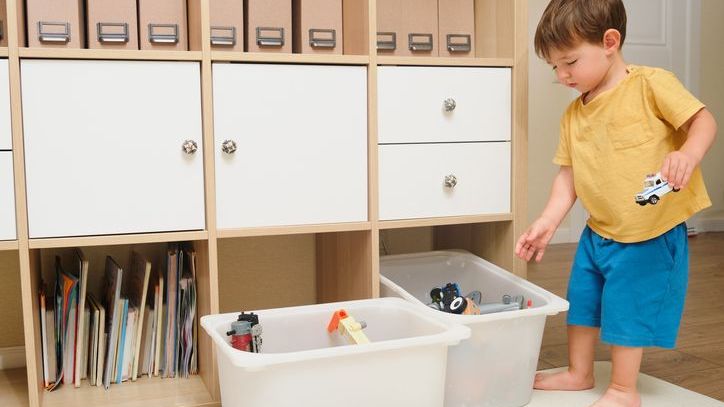
Parenting Tips for Encouraging Independence
As children grow and learn, they can take on some age-appropriate chores and responsibilities. You’ll find that many children enjoy helping, and actively seek ways to assist around the home.
Of course, as they’re still developing, they may not do the job perfectly, but with practice and perseverance, you’ll find yourself working alongside a capable and enthusiastic young person!
Encouraging children to participate in household chores links to wider developmental milestones. Confidence, self-esteem, concentration, and problem-solving skills can all be learned simply by including your child in age-appropriate chores and giving them the tools they need to succeed.
Age-Appropriate Chores and Responsibilities
Toddlers:
By age 2-3, most children like to watch, learn and copy what the grown-ups are doing.
At this age, children can help tidy up after playtime. They can put the crayons back in the box, pop their teddies back in their places, and put books back on the shelf. Toddlers are eager to help and learn. Let them put the clothes in the laundry basket, wipe up spilt water, or even put your pet’s food in the bowl.
It’s important that children are given the space to fail while they’re learning. Encouraging them to try again helps them to learn the value of practice and perseverance. Supervision and gentle guidance will help your child feel confident and boost their self-esteem as they learn.
Pre-school Age:
At 4-5, children have more ability so they can do some familiar tasks unsupervised and take on more complex responsibilities.
Chores this age group is capable of completing include:
- watering the flowers
- carrying some light groceries
- dusting
- vacuum with a small handheld to clear up crumbs
- pack/unstack the dishwasher
- helping to set the dinner table
Patience is key to success. Remember, you’re not just encouraging responsibilities arbitrarily. These tasks are where children learn the skills and abilities they’ll need throughout their lives. Remember to give lots of praise to reinforce the behaviour!
How To Foster Self-Confidence in Young Children
Giving children judgement-free space to make errors, and to learn by doing, will boost their self-confidence. Praising their efforts encourages them to try again next time or even to try a new task. Conversely, if a child feels that they’ve failed, they may give up trying entirely.
If your child becomes frustrated, you can offer guidance and gentle assistance to help them complete the task – rather than taking over to do it yourself. Some children may even reject the offer of help as their curiosity spurs them on to tackle the problem and solve it for themselves.
Setting realistic goals and expectations, with the bar slowly raised over the years to match your child’s developing skills, gives that positive reinforcement and feeling of achievement that’ll help your child’s confidence soar.
Setting Children Up for Independence
Self-confidence impacts so many parts of our children’s lives, it has lasting self-worth and self-image. These are key components of good mental health – as children, as teens, and as adults.
Some of the responsibilities you give your child at home will also be practised within their childcare centre. At childcare or kinder children are encouraged to help tidy up, to help make snacks, to take their clothing off themselves, to look after & care for their belongings, serve themselves their meals and to express their independence in other, safe ways, that are important to them.
If you would like to see how this works in practice, Little Learners Day Care welcomes parents and caregivers to tour their facilities. You can book a tour by calling, emailing, or by completing our online form. We look forward to seeing you here!
We service the following areas:

